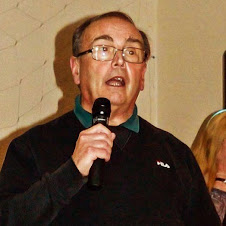"The State is no sort of truthful drama, as it claims to be. This is a recruitment video to rival Nazi propaganda of the Thirties calling young men to join the Brownshirts."
Having watched all four episodes, I can testify that the Mail got it wrong. As far as I am concerned, after watching the final episode, I was wondering (briefly) how to enlist with the Kurdish troops fighting ISIS (I'm overage). There is nothing in any of the episodes that could remotely be considered pro-ISIS propaganda. If anything, it is very much the opposite.
The four ISIS recruits arrive in the Islamic State radiant with enthusiasm for the cause, but disillusion rapidly sets in. These recruits are Ushna, 18, a timid student; Jalal, 19, whose brother died fighting for ISIS; Shakira, 26, a mother and doctor; and Ziyaad, 19, Jalal's friend and a school dropout. The two girls are "encouraged" to find husbands, which Ushna accepts, but Shakira doesn't. Shakira, who goes to the State to practise medicine, finds herself restricted in all manner of ways. She escapes being pressured into marriage to the Hospital Director (a nasty piece of work) by marrying a doctor who is secretly gay. After he is killed (doctors have to fight), and her 10-year old son is training to go to the front line, she escapes back to the UK, where she is pressurised by security forces into becoming an informer in the Muslim community.
Jalal witnesses some of the vile atrocities of ISIS: public execution, beheadings, etc., and is forced into beheading a prisoner (guilty of helping his Christian wife escape) but cannot bring himself to do it. He attempts to escape by car with a woman, presumably Yazidi, whom he bought for $200 along with her child. Alas, they are caught escaping in the final episode. Their car is stopped, the poor woman and her child are shot, and he is dragged away to an uncertain future. It will take another series to find out what happens.
As you may gather, this series pulls no punches and no ISIS atrocity is excluded. The writer, Peter Kosminsky, who wrote "Wolf Hall", has said of The State:
“I absolutely hope it will have a deterrent impact”.
I concur in this, although there is a point to be made about the timing. Was it right to show such a series after the terrorist outrages that happened so recently in this country and in Europe? As The Guardian comments:
" Kosminsky, who directed the successful BBC adaptation of Hilary Mantel’s novels Wolf Hall and Bring Up the Bodies, said this month he feared being “accused of being an apologist for a truly nasty organisation” because to understand why young Muslims joined a “horrific death cult” he had needed to show what attracted them to it."
It has to be said: there would have been no good time to show this series and others like it, as terrorist attacks are so frequent.
But there is one possible negative point that neither the Guardian or Mail have considered. ISIS have a small, secret, but dedicated presence in this country. They are significant enough to have planned and mounted terrorist crimes, and active enough to compel Britons who have fought for the Kurds, after returning to this country, to change addresses. Peter Kosminsky has succeeded in creating a fictional warning against Jihadist radicalisation; Mr Kosminsky had better watch his back.






